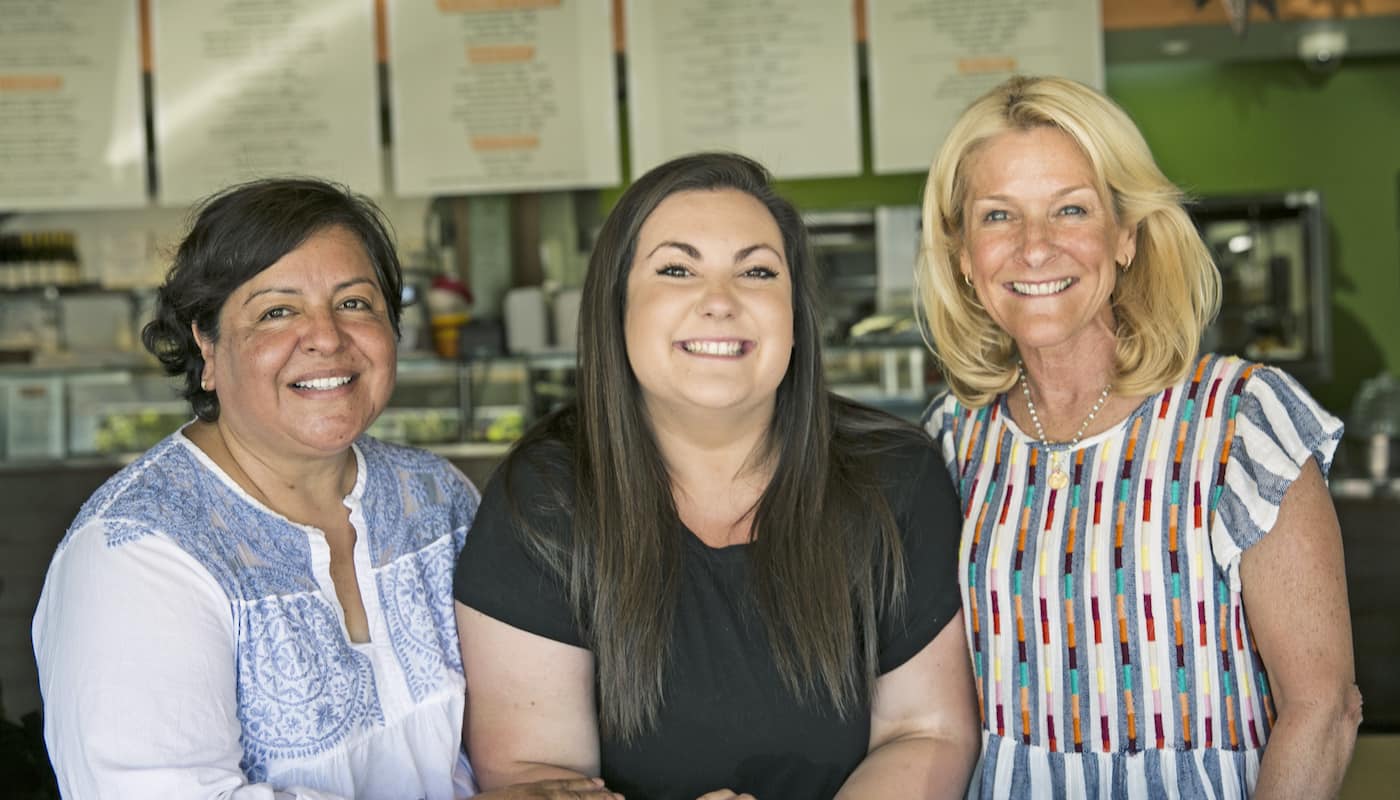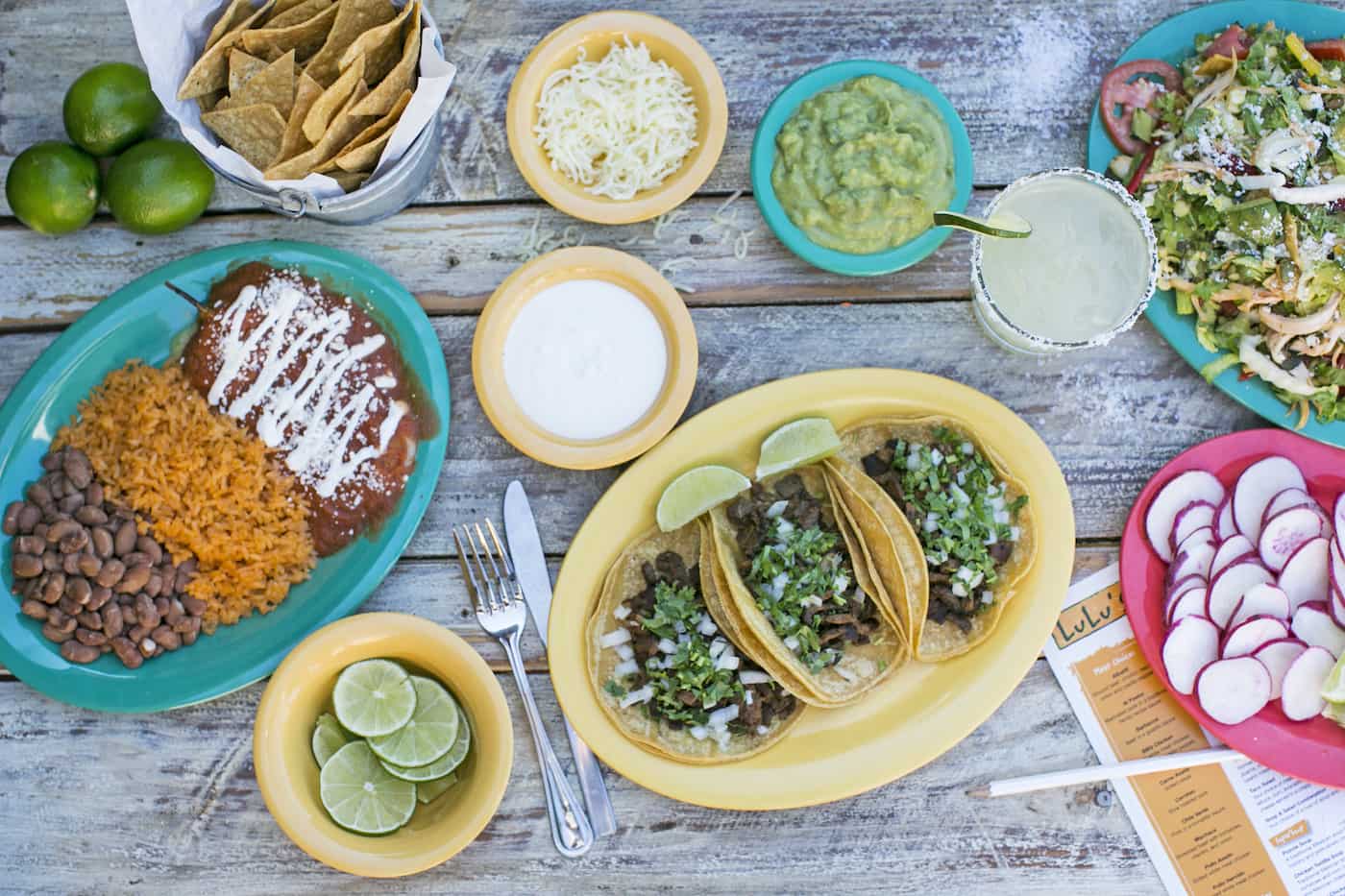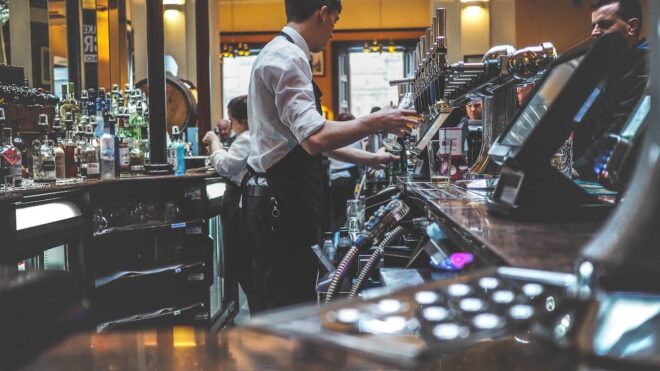LuLu’s Mexican Food
Editorial Team
9 min read
Our Meet the Merchant series features Q&As with real-world Clover merchants. Read our full catalog for innovative ideas and real-life stories of small businesses in action.
In this installment, we chat with Roxanne Mein, Director of Catering, Brand Development, and Online Ordering for Lulu’s Mexican Food. She shares her journey from teaching preschool to working for the popular San Francisco Bay Area brand, LuLu’s recipe for pandemic survival, and the key ingredient for small business success.
Clover: It’s great to speak with you today, Roxanne. Can you share the story behind Lulu’s?
Roxanne Mein: The idea for what would become LuLu’s restaurants started when Natalie Richardson, [the current] owner of LuLu’s, met Lulu (Lourdes) Lopez, who introduced her to the wonderful cuisine she had grown up with in Michoacán, a small pueblo in Mexico. Lulu and Natalie began to develop those recipes together.
With Natalie’s creativity, energy, and understanding of the local dining scene and Lulu’s talent, inspiration, and quality-centered approach to cooking, they made a great team. So, in 2005, LuLu’s first restaurant opened with Natalie as owner and Lulu as executive chef. Their idea had become a reality.
In the last 15 years, LuLu’s has expanded from our original location in Menlo Park to four other cities: San Carlos, Palo Alto, Los Altos, and Campbell. Each of our locations has its own personality. As Director of Catering, Brand Development and Digital Ordering, I get to work with each location and all our managers.
Clover: What can you tell us about the food you serve?
Mein: At LuLu’s, our menu is made up of Lulu’s family recipes mixed with traditional staples. We take pride in offering fresh, local, and healthful ingredients, like all natural meats. All of our produce is sustainably sourced from local vendors.
It’s very important for us to care for our Earth while we care for our community. We recently made the switch to eco-friendly packaging. With an increase in to-go orders during the pandemic, we knew there’d be a greater demand for packaging. We also felt the typical to-go containers would contribute to environmental damage. So we switched over to eco-friendly packaging, and we’re glad we have.
Clover: Can you tell us more about your role and how you landed at LuLu’s?
Mein: I grew up in the Bay Area in Menlo Park where Lulu’s flagship location opened in 2005. I remember going to Lulu’s as a child. It was a family-oriented, family-owned restaurant that was really comfortable for kids. Our menu is still very kid-friendly.
I started my career as a preschool teacher. After two years, I found my way into the wedding industry and became a wedding coordinator for a local golf course. It was fun and I learned a lot. That position led me to work for luxury event rentals in San Francisco, where I met lots of interesting people and made many connections. One day, my name came up in a conversation between LuLu’s owner, Natalie, and a friend’s mother. After speaking with Natalie and seeing what a great fit we were, I decided to make the move to work for LuLu’s.
So, just over a year ago, I joined LuLu’s as Catering Manager. Since then, my role has morphed into Director of Catering, Brand Development, and Online Ordering. I also handle LuLu’s print marketing. I wear a lot of hats and really enjoy my job.
Growing up as a local, I feel I’ve come full circle. I’m so proud to be part of a family like LuLu’s that I knew when I was a kid.

Clover: Thinking about marketing, who is LuLu’s target market?
Mein: Although each location reaches a different market, I’d say families make up the core of our market. Our recipes aren’t spicy, so kids really like our food. Our ingredients are fresh, flavorful, and unique. And we offer amazing salsa bars that keep families coming back.
Our Palo Alto location near Stanford University is a walk-in only venue with outdoor seating. The grab-and-go environment really appeals to local college and high school students alike, especially at lunchtime. Lots of students and families visit us during sports seasons at that location, too. It’s so good to see communities coming together at LuLu’s.
Los Altos and Menlo Park are home to many families and both have really nice vibes. We offer a full bar at our Los Altos location, where customers like to have a margarita and hang out. The Campbell location draws lots of professionals from the surrounding area, and the San Carlos location has an eclectic mix of customers.
Although every location has its own personality, at the heart of LuLu’s is a family vibe that appeals broadly to our customers—especially kids.
Clover: What are the unique business challenges with multiple locations?
Mein: Our San Carlos and Menlo Park restaurants are located in San Mateo County, while our Palo Alto, Los Altos, and Campbell restaurants are in Santa Clara County. Having facilities in two different counties definitely poses unique challenges, especially now.
Before the pandemic, it wasn’t very difficult to navigate two counties and five cities. We have great managers at each location who know their customers and run their facilities very well.
With the pandemic came various county-wide mandates, of course. Since each county is handling the pandemic differently, staying on top of mandates and protocols has been a challenge. We have followed these mandates very closely and are committed to following protocols for each county.
Clover: Why did LuLu’s make the switch to Clover?
Mein: Although LuLu’s switched to Clover before I joined the team, I understand we chose Clover because it was simple to set up and configure. Since joining LuLu’s, we’ve updated information in our Clover system multiple times and have even refined our menu during the COVID shutdowns—all without needing to contact support. It’s nice to know, of course, that Clover offers support when we need it.
Clover: How has the experience with Clover’s Online Ordering been?
Mein: Before we switched to Clover, we partnered with a third-party company for online orders. It worked well for us until we started having little issues. As more issues with orders surfaced, we were spending more time answering customer service emails. Then I discovered Clover offered Online Ordering, included with our Clover POS. I presented the idea of moving our online ordering to Clover, and after a few conversations, we decided to cancel our online ordering app and move to Clover.
We work with many third-party vendors, like GrubHub, DoorDash, Uber Eats, Postmates, Caviar, and Waiter.com, to name a few. So, I expected it’d take some work to configure Clover Online Orders the way we need it. While it did take some work to make the switch, I found that we can do just about anything we want with the Clover platform. We can customize descriptions, change “no” lists, and more. It’s been very nice to be able to customize it to suit our customers.
Being able to offer easy-to-use online ordering right from our website has also reduced call volume and makes managing orders easier for all of our restaurants.
Clover: What has the journey through the pandemic been like for LuLu’s?
Mein: It’s been interesting. We’re all learning as we go.
We were very lucky to have already integrated third-party vendors, so we were prepared to transition to a takeout-only restaurant. During the pandemic, we had to refine our menu to remove items that were no longer popular. In fact, we made the decision to remove some menu items permanently. Simplifying our menu has been a good decision, and one we think will be good in the long-term, too. So far, we haven’t had any customer complaints.
We’re really proud that we were able to keep all our locations open during the pandemic.
When the counties began allowing outdoor dining again, we set up outdoor dining for each location. In San Carlos and Los Altos, for example, we were able to expand outdoor dining into parking areas. In Menlo Park, we constructed a new patio with hand-built benches and planters. It’s beautiful, welcoming, and warm. Our Campbell location also has a wonderful patio for outdoor dining.
We’ve always followed strict cleaning procedures and have stepped those up even more above and beyond what’s required. We offer customers everything from hand sanitizing stations, to socially distanced dots on the ground to help customers know where to stand. Our staff and everyone entering the facility are required to wear masks. We aim to keep everyone safe.
Fortunately, we were already doing much of what’s required now, so we haven’t had to make many drastic changes. The only real change we’ve had to adjust to is no indoor dining.
Clover: How has the pandemic affected your bottom line?
Mein: Actually, things have netted out well. The first two months were difficult because people chose to stay home rather than go out. That was understandable. Then things started picking up. I think people grew tired of cooking and being at home. They want tasty food, so they come for takeout or to sit on our patios. The pandemic is different from anything we’ve experienced, but we’re learning as we go. We’re thankful we’ve done well in spite of it all.
Clover: What advice can you offer small businesses navigating this complicated time?
Mein: Don’t be afraid to step out of the box you’ve created for your business.
Recently, I’ve participated in several forums with small businesses from different areas. Many say they’re not set up for take-out services, they don’t have outdoor dining set up, or they don’t use third parties.
To survive in times like these, you have to step out of your box and get a little uncomfortable before you can be comfortable again. You have to make changes that better the business.
We’ve focused on adapting to the changing environment. Right now, we’re trying new ways to get the word out, like dropping menus by hotels, police departments, and other venues, reaching out through newsletters, and running more ads than usual—anything to reach new customers and remind past customers we’re still here.
Change can be hard at first. You might cringe at the commission that DoorDash takes, for example. In the long run, though, you have to do what’s needed to bring new customers in and keep your regulars coming back.
Few businesses were prepared for any of this, so adaptation is the best way, probably the only way, to survive right now.
Related Posts
5 types of restaurant employee theft, and how to prevent them
Kwame A. Michel, Inc.
Popular Topics
Stay in touch
Sign up and learn more about Clover.
Thank you for your subscription!
More posts about starting a small business
eBook





